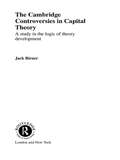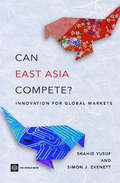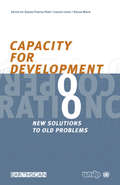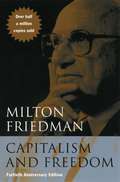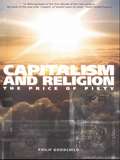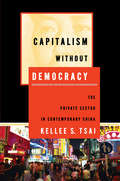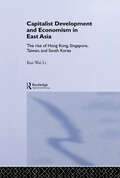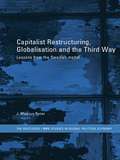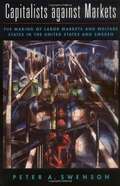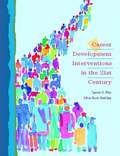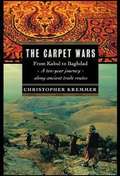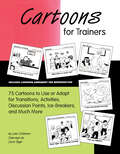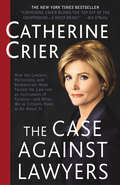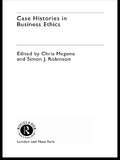- Table View
- List View
Calvin Klein, Inc. vs. Warnaco Group, Inc.
by Susan Fournier Jessica BoerOn May 30, 2000, Calvin Klein, Inc. (CKI) filed suit against Warnaco Group, Inc. and Linda Wachner, its CEO, for breaching its jeanswear licensing and distribution contract and, in so doing, diluting the equity of its brand. On June 26, 2000, Warnaco countered with its own suit, denying the major allegation of trademark dilution and justifying distribution through warehouse clubs as acceptable business practice. The countersuit further claimed that CKI had, in fact, breached the license and eroded the brand through its own strategies and practices. The lawsuits were precedent setting: This was the first time a licensed manufacturer/distributor had been charged with brand equity dilution or a designer held accountable for ineffective brand advertising. It was a case that would potentially rewrite the rules of fashion licensing and distribution, and bring into the limelight the tensions faced by every brand steward attempting to balance revenue growth goals with preservation of the equity of the brand. This case presents extensive background facts.
Cambridge Controversies in Capital Theory: A Methodological Analysis
by Jack BirnerThis book explains the debate over the Cambridge controversies of the 1960s and 1970s. In a compelling and comprehensive argument, Birner discusses the main contributions to the controversy in a series of case studies. He gradually develops a methodological model of idealizations that explains both the progress of the debate and the historical iron
Can East Asia Compete? Innovation For Global Markets
by Shahid Yusuf Simon J. EvenettEast Asian economies of the 1980s and much of the 1990s were among the most competitive exporters of manufactured products and were also able to sustain growth rates far higher than those of other countries, developing or industrial. However, the economic crisis of 1997-98 impacted the economies of these countries. Although recovery began fairly quickly in some countries, others have yet to regain their growth momentum. 'Can East Asia Compete?' looks at whether or not East Asia can restore its near magical performance, or is its competitive strength beginning to wane. This volume argues that East Asian countries have far from exhausted their growth potential. However, future competitiveness will depend on much greater innovative capability in manufacturing and services, innovativeness that is grounded in stronger institutions, improved macroeconomic policies, and closer regional coordination. 'Can East Asia Compete?' clearly summarizes the issues currently being debated and provides guidance to East Asian economies on how to deal with the policy concerns that lie ahead.
The Canadian Small Business Survival Guide: How to Start and Operate Your Own Successful Business (Revised and Expanded Edition)
by Benj GallanderFor anyone contemplating starting a small business with potential sales of a few thousand dollars up to the two million level, and for those who currently run their own businesses, this is the most comprehensive, up-to-date guide available. The Canadian Small Business Survival Guide will not only instruct beginners whose business knowledge is limited, but also provide a wealth of interesting information for experienced entrepreneurs. The author has covered every imaginable facet of running a successful business. The topics include: types of business, financing, government assistance, locations, franchises, and marketing. One section, presented with step-by-step instructions, explains how to prepare necessary financial statements and business plans. The book also includes charts, checklists, exhibits, graphs, and tables that are indispensable for entrepreneurs and for those seeking a business loan. 10th Printing - over 25,000 sold Most popular book on small business in Canada This edition completely revised and updated - contains new sections on computers and the Internet
Cap Gemini Ernst & Young: A Global Merger (A)
by Ashish Nanda Guillaume Soenen Bertrand Moingeon Lisa RohrerFrench IT consulting giant Cap Gemini is poised to purchase the consulting arm of Ernst & Young, a U.S.-based Big 5 accounting firm. In doing so, many differences need to be resolved, including negotiating with Ernst & Young entities all over the world as well as converting Ernst & Young partners into employees of publicly held Cap Gemini. Amidst all of the decisions, the market for IT consulting services is changing rapidly, further complicating the merger negotiations and implementation. Teaching Purpose: To study the range of issues that must be considered and resolved in negotiating a professional services firm merger, the valuation and motivational challenges associated with merging a private entity into a public entity, and the challenges of negotiating a cross-border merger.
Cap Gemini Ernst & Young: A Global Merger (B)
by Ashish Nanda Guillaume Soenen Bertrand Moingeon Lisa RohrerThe negotiations for the merger between Cap Gemini and Ernst & Young conclude, resolving issues of how to bring together Ernst & Young consulting partnerships from all over the world into the publicly held Cap Gemini. Reactions to the merger were optimistic within Cap Gemini and Ernst & Young, but analysts voiced concerns about a cultural clash between the two firms and the viability of the new firm's strategy.
Capacity for Development: New Solutions to Old Problems
by Carlos Lopes Sakiko Fukuda-Parr'The United Nations system was a pioneer in the field of technical cooperation, and capacity development is its central mandate. UNDP has long played an important leadership role in both, as a source of technical cooperation funds and advisory services and as the home of innovative intellectual research and analysis on how to make them more efficient and effective. This book [presents] a vision that builds on new possibilities for knowledge-sharing, for which the revolution in information and communications technologies offers ample opportunities... a vision that is firmly founded on genuine ownership by the ultimate beneficiaries of development efforts: the government and citizens of developing countries' From the Foreword by MARK MALLOCH BROWN, Administrator, UNDP Capacity for Development brings together innovative and well-supported studies of technical cooperation along with its potential to build sustainable capacities in developing countries, by enhancing the knowledge, skills and productive aptitudes of their populations. A team of eminent development professionals and economists examine the achievements of technical cooperation and offer recommendations for reform in the context of globalization, democratisation, the information revolution and the growth of capacities in the South. They analyse the issues from three perspectives: ownership, capacity enablers and knowledge. The team show how the complex processes involved can be restructured to produce local involvement and empowerment, set out a normative framework for the input from society, and describe a new paradigm of knowledge for capacity building in the network age. This book will be essential reading for all development professionals and policy-makers, as well as providing an invaluable research and teaching resource.
Capital Account Liberalization and Financial Sector Stability
by Shogo Ishii Karl Habermeier Jorge Iván Canales-Kriljenko Bernard Laurens John Leimone Judit VadaszThis paper analyses the links between capital account liberalisation and other policies influencing financial sector stability. Drawing on country experiences, it develops an operational framework for the co-ordination of capital account liberalisation, particularly with structural policies to strengthen the domestic financial system.
Capital Budgeting
by Don Dayananda Richard Irons Steve Harrison John Herbohn Patrick RowlandThis book for advanced students and professionals in management and finance explains the financial appraisal of capital budgeting projects. It develops basic concepts, principles and techniques and applies them to case studies in forestry, property and international investments. Resource constraints are introduced to the capital budgeting decisions with a variety of worked examples using linear programming techniques. All calculations are extensively supported by Excel workbooks on the Web, and end of chapter questions.
Capital Controls
by Laura Alfaro Rawi AbdelalOnly in the waning years of the 20th century did international financial markets begin to enjoy the freedom from government regulation that they had experienced before the first world war. By 2002, international capital markets had grown to be enormous--$1.2 trillion flowed around the globe per day. The massive size of the market presented policy makers with a serious challenge as they were forced to grapple with the costs and benefits of such mobile capital. This note briefly relates the modern history of capital controls and summarizes scholarship on the advantages and disadvantages of international financial market regulation.
Capitalism and Freedom (40th Anniversary Edition)
by Milton Friedman Rose D. FriedmanHow can we benefit from the promise of government while avoiding the threat it poses to individual freedom? In this classic book, Milton Friedman provides the definitive statement of his immensely influential economic philosophy -- one in which competitive capitalism serves as both a device for achieving economic freedom and a necessary condition for political freedom. The result is an accessible text that has sold well over half a million copies in English, has been translated into eighteen languages, and shows every sign of becoming more and more influential as time goes on.
Capitalism and Religion: The Price of Piety
by Philip GoodchildOur global ecological crisis demands that we question the rationality of the culture that has caused it: western modernity's free market capitalism. Philip Goodchild develops arguments from Nietzsche, Adorno, Horkheimer, and Marx, to suggest that our love of Western modernity is an expression of a piety in which capitalism becomes a global religion, in practice, if not always in belief. This book presents a philosophical alternative that demands attention from philosophers, critical theorists, philosophers of religion, theologians, and those in ecological politics.
Capitalism without Democracy: The Private Sector in Contemporary China
by Kellee S. TsaiOver the past three decades, China has undergone a historic transformation. Once illegal, its private business sector now comprises 30 million businesses employing more than 200 million people and accounting for half of China's Gross Domestic Product. Yet despite the optimistic predictions of political observers and global business leaders, the triumph of capitalism has not led to substantial democratic reforms. In Capitalism without Democracy, Kellee S. Tsai focuses on the activities and aspirations of the private entrepreneurs who are driving China's economic growth. The famous images from 1989 of China's new capitalists supporting the students in Tiananmen Square are, Tsai finds, outdated and misleading. Chinese entrepreneurs are not agitating for democracy. Most are working eighteen-hour days to stay in business, while others are saving for their one child's education or planning to leave the country. Many are Communist Party members. "Remarkably," Tsai writes, "most entrepreneurs feel that the system generally works for them." Tsai regards the quotidian activities of Chinese entrepreneurs as subtler and possibly more effective than voting, lobbying, and protesting in the streets. Indeed, major reforms in China's formal institutions have enhanced the private sector's legitimacy and security in the absence of mobilization by business owners. In discreet collaboration with local officials, entrepreneurs have created a range of adaptive informal institutions, which in turn, have fundamentally altered China's political and regulatory landscape. Based on years of research, hundreds of field interviews, and a sweeping nationwide survey of private entrepreneurs funded by the National Science Foundation, Capitalism without Democracy explodes the conventional wisdom about the relationship between economic liberalism and political freedom.
Capitalist Development and Economism in East Asia: The Rise of Hong Kong, Singapore, Taiwan and South Korea (Routledge Studies in the Growth Economies of Asia #Vol. 35)
by Kui-Wai LiTaking a conceptual approach, this book studies the economic development of the four East Asian economies since 1950. The author summarizes and reconsiders many of the arguments and findings that supported and explained the economic 'miracles' of Hong Kong, Singapore, Taiwan and South Korea, analysing the relationship between economic development, growth and political economy.This pioneering book will stimulate further analysis of East Asian development. It will be of essential interest to scholars in East Asian economics, and all those interested in modern economic development.
Capitalist Restructuring, Globalization and the Third Way: Lessons from the Swedish Model (RIPE Series in Global Political Economy)
by J. Magnus RynerThis book addresses the contemporary debate about the 'third way' in European social democracy, by analysing the exemplar case of social democracy - 'the Swedish model' - this book challenges the recent 'third way' perspective. The author argues strongly against the widely held belief that the nature of contemporary capitalist restructuring and globalisation has rendered traditional social democracy obsolete.
Capitalists Against Markets: The Making Of Labor Markets And Welfare States In The United States And Sweden
by Peter A. SwensonConventional wisdom argues that welfare state builders in the US and Sweden in the 1930s took their cues from labor and labor movements. Swenson makes the startling argument that pragmatic social reformers looked for support not only from below but also from above, taking into account capitalist interests and preferences. Juxtaposing two widely recognized extremes of welfare, the US and Sweden, Swenson shows that employer interests played a role in welfare state development in both countries.
Cardinal Health (A): The Medicine Shoppe Acquisition
by Regina E. Herzlinger Miguel Abecasis Brenda ChengRobert Walter, the founder and CEO of Cardinal Health, a pharmaceutical distributor, is contemplating the purchase of Medicine Shoppe, a chain of apothecaries. The purchase might be construed as competition against his own drugstore customers. But one of its many advantages is the window it provides on the turbulent outside environment, with consolidation of his customers and managed care pressure on the pharmaceutical industry.
Career Counseling: Applied Concepts Of Life Planning
by Vernon G. ZunkerThis successful and popular book has been completely updated to give you the most recent information on emerging theories, recent research, and current computer-assisted guidance programs in career counseling! Whether you are a counselor or a counselor-in-training, you'll appreciate the way Vernon Zunker presents practical techniques and real-life examples as he patiently helps you understand the theoretical models of career counseling and how to effectively counsel clients about career issues. In the Sixth Edition, you'll find Zunker's clear writing style and interesting exercises, as well as: *Five career counseling models with case illustrations *A new Chapter 8, "Self-Assessment and a Model for Using Assessment," which discusses the rationale for using self-assessment tools *A new Chapter 15, "Career Counseling for Gay, Lesbian, and Bisexual Clients," which helps familiarize you with the issues and needs of this client population *Theories of career development and counseling models-summarized in tables to help you study and prepare for the licensing examination *Web site information that points you to additional, reliable information online *And much more!
Career Development Interventions in the 21st Century
by Joann Harris-Bowlsbey Spencer G. NilesThis book presents strategies and suggestions for teaching career development as well as strategies for helping with career choices. Includes case studies and a bibliography.
Cargill (A)
by Ray A. Goldberg Jose Miguel PorrazCargill is one of the world's leading marketers, processors, and distributors of agricultural, food, industrial, and financial products. In 1998, the company decided to develop a strategic intent to restructure and refocus the company. It did so in response to the consolidation of the industry, globalization, and the impact of the genetic revolution. It had to change its focus from the producer to the consumer and market solutions.
Caribbean Offshore Financial Centers: Past, Present, and Possibilities for the Future
by Esther C. Suss Oral H. Williams Chandima MendisA report from the International Monetary Fund.
The Carpet Wars: A Ten-Year Journey along Ancient Trade Routes
by Christopher KremmerApart from oil, rugs are the Muslim world's best-known commodity. While rugs are found in most Western homes, the story of religious, political, & tribal strife behind their creation is virtually unknown. Here, Kremmer chronicles his fascinating 10-year journey along the ancient carpet trade routes that run through the world's most misunderstood & volatile regions -- Afghanistan, Iran, Iraq, India, Pakistan, & the former Soviet republics of Central Asia. He takes readers into a world where even the simplest motif on a rug can be filled with religious, tribal, & political significance, & he offers a personal, vivid, & revealing look at Islam's human face, wracked by turmoil but sustained by friendship, industry, & humor.
Cartoons for Trainers: Seventy-five Cartoons to Use or Adapt for Transitions, Activities, Discussion Points, Ice-breakers and Much More
by Lenn MillbowerAs most instructors, presenters and trainers have discovered, cartoons are an excellent classroom resource for making key learning points in an enjoyable, engaging manner. Cartoons function well as metaphors for the subject at hand, help introduce or wrap-up key concepts, and serve to ease transitions between learning segments. However, as most users have also discovered, reproduction fees for cartoons in training can be expensive; permissions hard to obtain; and copyright holders difficult to track down.This book provides the solution. Cartoons for Trainers presents over 75 original cartoons, conceptualized by trainers for trainers. It includes a license that allows buyers to display these cartoons in the classroom. The cartoons focus on the transition points in any training program. Subjects include objectives, introductions, activities, case studies, role-plays, experiential learning, breaks, evaluations, and closings. For anyone who wants tips or guidance, the author provides a brief and practical introduction.In addition, the cartoons are reproduced on the included CD-ROM for use in electronic presentations. Purchase of the book constitutes permission for the buyer to reproduce the cartoons for overheads or place them in electronic presentations. Written by leading offbeat training expert Lenn Millbower, author of Training With A Beat: The Teaching Power of Music, and the composer of Do You Want to Learn With Music: Game Show Themes for Trainers, and drawn by New York show director Doris Yager, these cartoons exhibit a tongue-in-cheek wit reminiscent of Gary Larson's The Far Side and Scott Adams' Dilbert. All the cartoons make good-natured fun of the everyday foibles trainers experience, while addressing the fears that learners have toward training. This is an ideal trainer's companion and deserves a place in any trainer's toolbox.
The Case Against Lawyers
by Catherine CrierThe Emmy Award-winning host of Court Tv's "Catherine Crier Live" describes an American legal system dangerously out of control- and finds the lawyers guilty as charged. As a child, Catherine Crier was enchanted by film portrayals of crusading lawyers like Clarence Darrow and Atticus Finch. As a district attorney, private lawyer, and judge herself, she saw firsthand how the U.S. justice system worked- and didn't. One of the most respected legal journalists and commentators today, she now confronts a profoundly unfair legal system that produces results and profits for the few- and paralysis, frustration, and injustice for the many. Alexis de Tocqueville's dire prediction in America has come true: We Americans have ceded our responsibility as citizens to resolve the problems of society to "legal authorities"- and with it our democratic freedoms. The Case Against Lawyers is both an angry indictment and an eloquent plea for a return to common sense. It decries a system of laws so complex even the enforcers- such as the IRS- cannot understand them. It unmasks a litigation-crazed society where billion-dollar judgments mostly line the pockets of personal injury lawyers. It deplores the stupidity of a system of liability that leads to such results as a label on a stroller that warns, "Remove child before folding." It indicts a criminal justice system that puts minor drug offenders away for life yet allows celebrity murderers to walk free. And it excoriates the sheer corruption of the iron triangle of lawyers, bureaucrats, and politicians who profit mightily from all this inefficiency, injustice, and abuse. The Case Against Lawyers will make readers hopping mad. And it will make them realize that the only response can be to demand change. Now.
Case Histories in Business Ethics
by Chris Megone Simon J. RobinsonCase Histories in Business Ethics illustrates and extends the role of case histories in the teaching and study of business ethics. Typically, case histories are used to illustrate assertions or arguments, or to stimulate debate about an issue within business ethics. This volume examines that role, illustrating the link between case histories and mo

